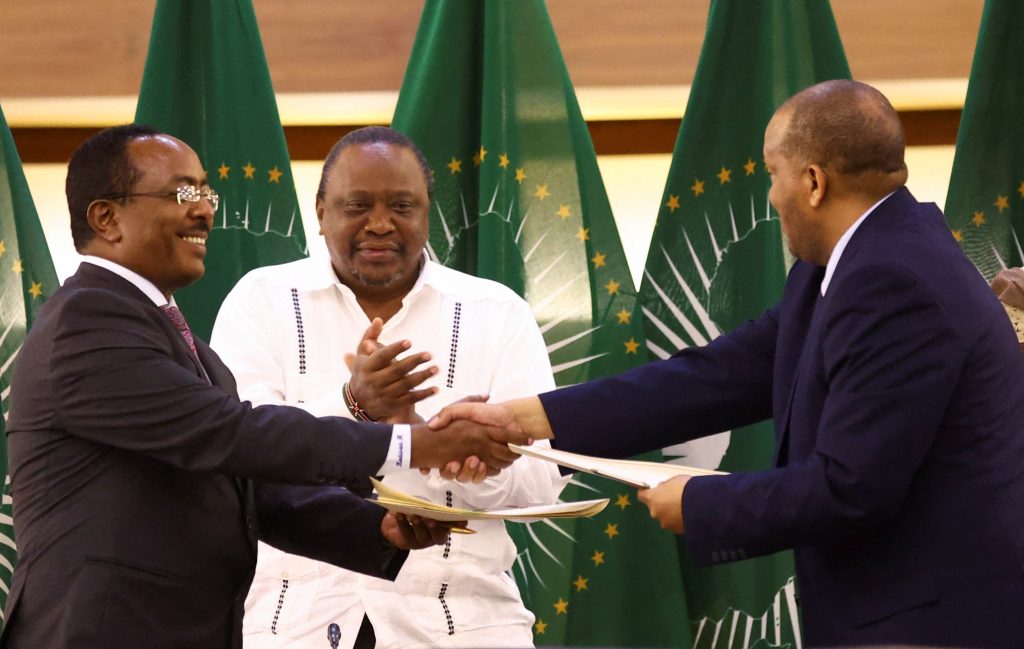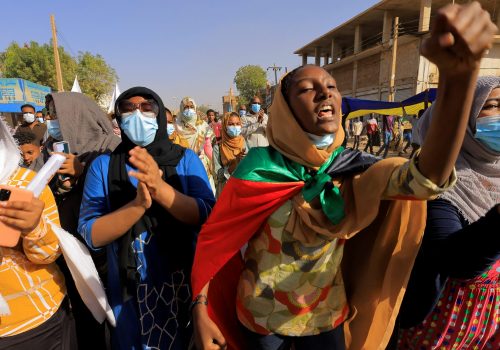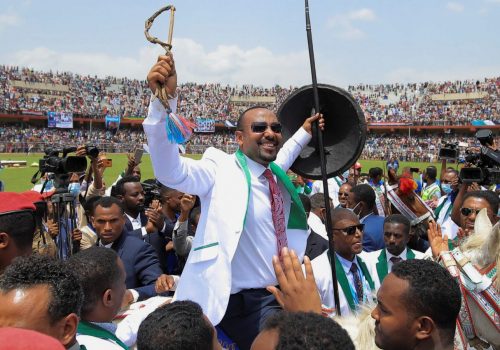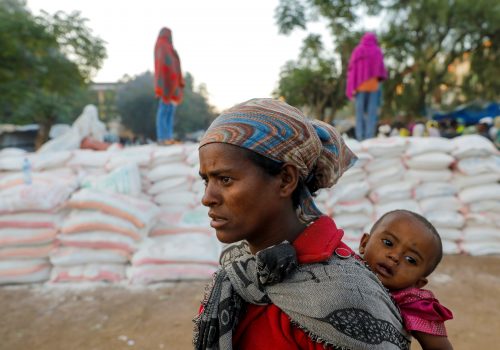This week, negotiators from the Ethiopian government and rebels in the Tigray region reached a truce to end their two-year war—one that has killed hundreds of thousands of people through fighting and starvation, and included accusations of war crimes. With the Tigrayan People’s Liberation Front (TPLF) reportedly agreeing to lay down its arms and the government agreeing to restore essential services to its battered northern region, what are the chances that this deal will hold? What role should international institutions play? Our regional experts help sketch out the answers.
1. What do you make of this peace deal, and what should we be watching to see if it holds?
Less than forty-eight hours before the two-year anniversary of the conflict, it is a step forward that has created great hope. It is also a salutary break for the civilian populations after almost two years of conflict. Since November 2020, the war has displaced more than two million Ethiopians and plunged hundreds of thousands into famine. But this agreement is not yet peace: It is the cessation of hostilities. The composition and determination of the members of the committee responsible for the implementation of the agreement will be decisive. Above all, major questions remain unresolved, including the question of Eritrea. The neighboring nation’s role in the peace deal is not clear after it joined the war on Ethiopia’s side, which is cause for concern considering all the crimes Eritrean soldiers have committed in Tigray over the past two years. Can there be peace without justice? This is the question that Tigrayan civilians must ask themselves these days.
—Rama Yade is senior director of the Council’s Africa Center.
The peace deal is excellent news; bringing an immediate end to this particularly cruel war is good for everyone. It remains to be seen, however, if the Tigrayans will uphold their promise to disarm, and if the Ethiopians will open access so that aid organizations can bring desperately needed help to civilians. We also have to watch the actions of the Eritreans, who are a party to the conflict but have not been included in the peace deal. Are they going to suspend their military operations? Will they go home and demobilize?
—Michael Shurkin is a nonresident senior fellow at the Africa Center.
2. What role will outside countries in Africa or the West, or institutions such as the African Union and United Nations, need to play going forward? What guidance would you give them?
This is a success for African Union head and Senegalese President Macky Sall, former Nigerian President Olusegun Obasanjo, and South African President Cyril Ramaphosa, who all helped broker the deal. The implementation of the road map will be crucial. While the agreement claimed that TPLF combatants will be “disarmed, demobilized, and reintegrated,” fighting has been continuing in Tigray, where Ethiopian federal troops, backed by the Eritrean army and forces and militias from the neighboring Amhara and Afar regions, have been advancing since mid-October.
—Rama Yade
The West and international organizations like the UN and AU can play a vital role in monitoring the three sides of the conflict (the third being Eritrea) and holding them accountable. They of course need to be balanced, but that does not mean they can’t be tough—they shouldn’t pull their punches.
—Michael Shurkin
3. How can and should Ethiopian Prime Minister Abiy Ahmed move forward with governing the country as a whole? What kind of mark does this conflict leave for him?
Among the main points of the declaration signed by the Ethiopian government and the TPLF, the two sides committed to “safeguard the sovereignty and territorial integrity of Ethiopia” and “restore constitutional order in the Tigray region.” This is a fundamental question. It is up to Abiy to prove that the Nobel committee was not wrong by awarding him its most prestigious recognition: The Peace Prize.
—Rama Yade
Abiy has to try to calm militants on all sides and ensure that everyone benefits from what should come next: reconstruction and development. On a regional level, a successful end to the war does not resolve other issues such as Ethiopia’s development of the Grand Ethiopian Renaissance Dam, which Egypt and to a lesser extent Sudan oppose. That was put on the back burner because of the war but may now return to the fore.
—Michael Shurkin
Further reading
Tue, Jan 11, 2022
The US risks losing its influence in the Horn of Africa. Here’s how to get it back.
New Atlanticist By Gabriel Negatu
Evolving crises in Ethiopia and Sudan have exposed Washington’s lack of a clear and coherent policy for the region.
Thu, Oct 7, 2021
Time is running out for Abiy’s ‘new beginning’ in Ethiopia
New Atlanticist By
Cheering crowds and soaring rhetoric cannot hide the fact that Prime Minister Abiy Ahmed’s troubles run deeper than just one restive region.
Fri, Sep 17, 2021
Biden finally gets bold on Ethiopia. But will it bring peace?
New Atlanticist By
The Biden team has launched its final and most elaborate warning shot before cracking down with sanctions against human-rights abusers in the Tigray region.
Image: Former Kenyan President Uhuru Kenyatta applauds Ethiopian government representative Redwan Hussien and Tigray delegate Getachew Reda after signing the AU-led negotiations to resolve the conflict in northern Ethiopia, in Pretoria, South Africa, November 2, 2022. REUTERS/Siphiwe Sibeko



